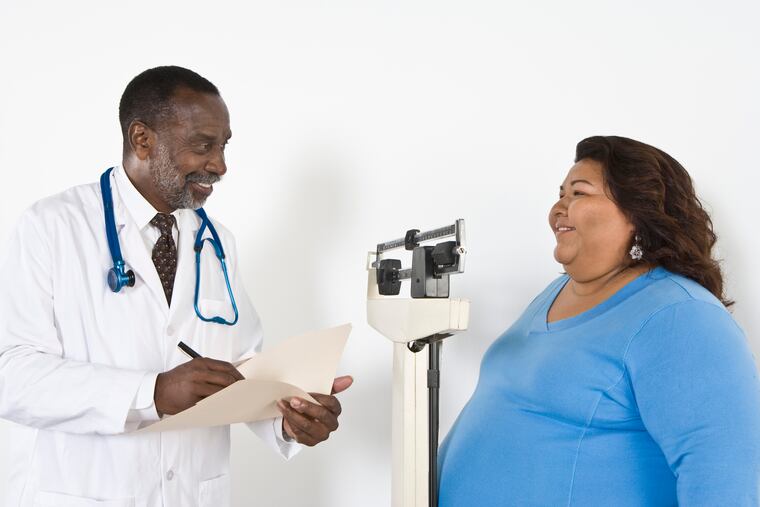Obesity-related cancer rates are rising in middle-aged Americans but falling in seniors. What’s going on?
Researchers found that rates of obesity-related cancers are rising among people aged 50 to 64, and declining among senior citizens.

The risk of developing cancer increases with age.
But a new analysis of federal cancer data suggests that the obesity epidemic is making the demographic picture more complicated. Case Western Reserve University researchers found that rates of obesity-related cancers are rising among people aged 50 to 64 and declining among those 65 and older, so middle-aged people make up a growing proportion of those cancer diagnoses.
“Obesity can accelerate the development of cancer,” said Nathan A. Berger, senior author of the study published online Wednesday in JAMA Network Open.
The study analyzed 2.7 million cases of 13 types of cancers known to be associated with obesity — breast, ovarian, uterine, liver, thyroid, gall bladder, bile duct, esophageal, multiple myeloma, kidney, pancreas, stomach, and meningioma — between 2000 and 2016. The researchers parsed the data by sex, race, and ethnicity.
They also analyzed 3.4 million cases of non-obesity-related cancers for the same period.
Scientists have found that cancer can be fueled by the same metabolic abnormalities that occur in obesity and type 2 diabetes. Those abnormalities include chronic inflammation and resistance to insulin, the hormone that enables cells to absorb blood sugar and convert it to energy.
A growing body of studies has linked excess weight to rising rates of cancer among younger adults. A study in Lancet Public Health in March found that millennials (those born between the early 1980s and mid-1990s) are twice as likely to develop four obesity-related cancers — colorectal, endometrial, pancreatic, and gall bladder — as baby boomers (born from 1946 to 1964) were at the same age.
The Case Western study did not find significant increases in rates of obesity-related or non-obesity related cancers for the youngest group, ages 20 to 49.
In contrast, ages 50 to 64 had increased rates of both obesity-related and non-obesity related cancers — but this trend was more pronounced for cancers linked to excess weight. For those age 65 or older, meanwhile, the rates generally fell — a finding that the researchers acknowledge is contrary to previous studies.
For example, among white males with obesity-associated cancers, the proportion of those who were ages 50 to 64 increased from 28% in 2000 to 34% in 2016, while the proportion of those 65 and over decreased from 62% to 57%.
One limitation of the study is that it relied on a federal cancer surveillance database that lacks information about body mass index, or BMI, the measure of body fat based on height and weight. “Thus,” the authors say, “we were unable to determine whether obesity-associated cancers actually occurred in individuals with high body adiposity.”
However, the pervasiveness of unhealthy weight is clear. In the U.S., about 40% of adults over age 20 are obese, defined by a BMI of 30 or greater; that rises to 72% if overweight individuals (those with a BMI of 25 to 29.9) are included, according to government data.
One implication of the new study, the authors say, is that as people turn 65 and qualify for Medicare, “more ... will be cancer survivors with a high burden of mental health problems, functional impairment, and medical bankruptcy."
Lead author Siran M. Koroukian, a Case Western population health researcher, said the changing demographics should also make physicians watch out for cancer, even in younger patients.
“Time and again, people go in with symptoms and doctors don’t suspect cancer,” she said. “We are seeing later diagnosis in younger people and that impacts their prognosis.”
Above all, the findings point to the need to fight obesity.
“These findings,” they conclude, “have important public health implications and suggest that interventions to reduce obesity and to implement individualized screening programs are needed.”